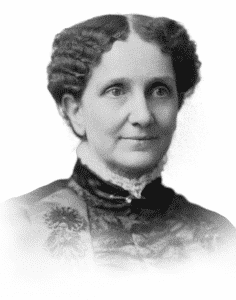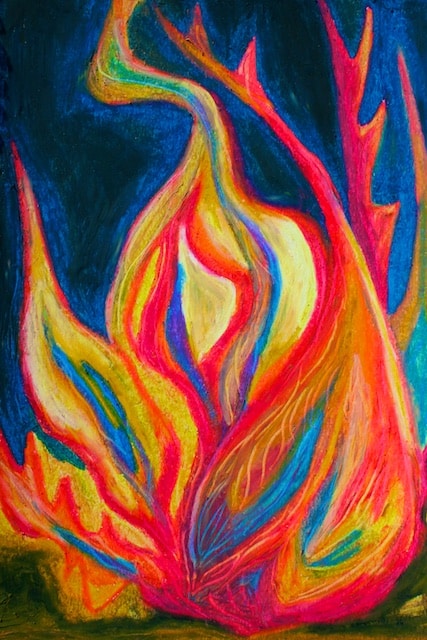
“No evil suggestion has sought more industriously or senselessly to restrain the inquirer than the one that Christian Science has been introduced to the world by a woman, and for that reason does not deserve acceptance at the hand of an intelligent people. Please pardon me, dear reader, if with unconventional familiarity I ask you to imagine yourself in an old-fashioned fire-and-brimstone hell. We will assume that you have been in it a long time and have endured the interminable fire of its wretchedness, and have had enough of it. Now let us suppose that it is made known to you that there is a rope hanging over the brink of hell, and that if you can find the rope it will, in some way, pull you out; what would you do? Why you would spend days and nights looking for that rope. No invitation to remain longer to enjoy the pleasures of hell would turn you from your imperative purpose. In the course of time, it would occur to you that you were not bestowing any favor or advantage on the rope by looking for it. You would dismiss the thought that because of your social position or the unusual importance of your personality, the rope ought to look you up and insist on your allowing it to bestow some great service upon you. In the course of a proper search for the rope, humility, reverence, simplicity, and purity of motive would mark the progress of your pilgrimage like milestones, and your heart’s deep petition would be that you might see the way and walk therein.
Now let us suppose that you have found the rope, and that as you approach it you see a large concourse of people, all of them in the throes of more or less damnation and all in supreme need of deliverance. Among those people there is much discussion and debate. You wait long enough to observe that many persons are clinging to the rope and are being reclaimed and lifted out of the pit. Finally some one comes to you, at the moment when hope should be high and your pitiful appeal be nigh unto its answer, and tells you that he has decided not to try the rope because its color or texture is not according to his judgment and fancy, and because it has been suspended over hell’s awful abyss by a woman! What would you do? Would you, for such a reason, turn back and cast yourself again into the havoc which is so utterly without promise of its extinction that people have for ages called it eternal? Again let us assume that you are stirred by the thought that perchance the rope is well enough, perse, and it would be entitled to your respect and devotion if it had been introducted into the scene of human turmoil by a man, or by some one of our great men. What is to be said concerning this?
The rope and its undeniable achievements constitute a fixed, determined, accomplished fact. Since the day when Christ Jesus prophesied that “ye shall know the truth, and the truth shall make you free,” there have been billions of men on earth, all intent on getting out of trouble. Not one of them ever found the rope,—the scientific rule of practice whereby evil is exterminated. It is, perhaps, no wonder that you repine because no great man has done this thing, but is there any rationality in the demurrer against the great woman who verily hath accomplished the fact?
You are not asked to worship the rope. You are not asked to worship the woman, indeed there is no place for an apotheosis in Christian Science practice. You are simply to learn that the Mind “which was also in Christ Jesus” is the Master of every conceivable evil and hath abolished “the law of sin and death” in accordance with the will and law of our supreme God. Some day it may be yours to understand this great transaction and to discern the superb fitness of all its parts, and when you do so understand you will be satisfied, and you will be glad that it came through a woman. Moreover, you will learn, some day, that the woman who discovered the rope and uncoiled it in the sight of the world and over the brink of human misfortune, has been obliged ceaselessly to continue her watch, whereby to keep it there. You will also learn that while doing this she has been subjected to every conceivable assault of evil, and yet has endured, and labored, and won for humanity; and when you know all about the unspeakable travail of this ministry, you will wonder if you have ever heard of a man, since the day of primitive Christianity, who was equal to such a task.”
by Edward A. Kimball (as seen here)

The Flame Shall Not Hurt Thee (oil pastel) by Polly Castor
3 Comments
-
New thought. I love unity…bases on roughly the same experiences….
-
Wow Polly! Stirring stuff! Thanks for sharing and we are so grateful to Mary Baker Eddy for all she did for humanity and for all she accomplished and put in place to enable our spiritual growth. X
-
An inspired idea to share with us this at this time. Thank you Polly for being such a loving listener. Edward Kimball’s article in The Journal in 1905 is powerfully relevant today.





